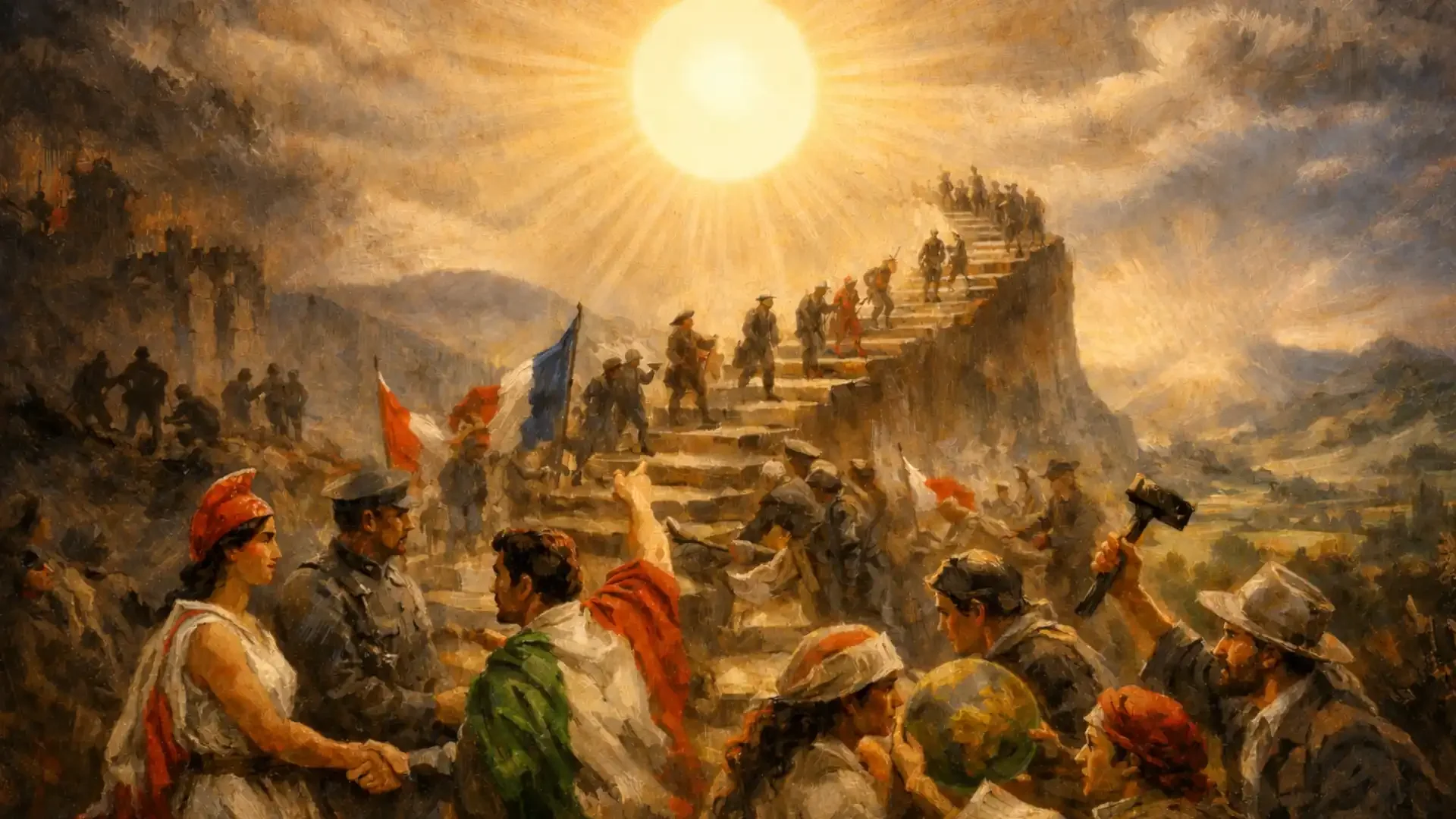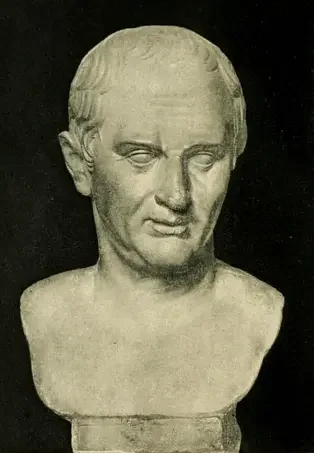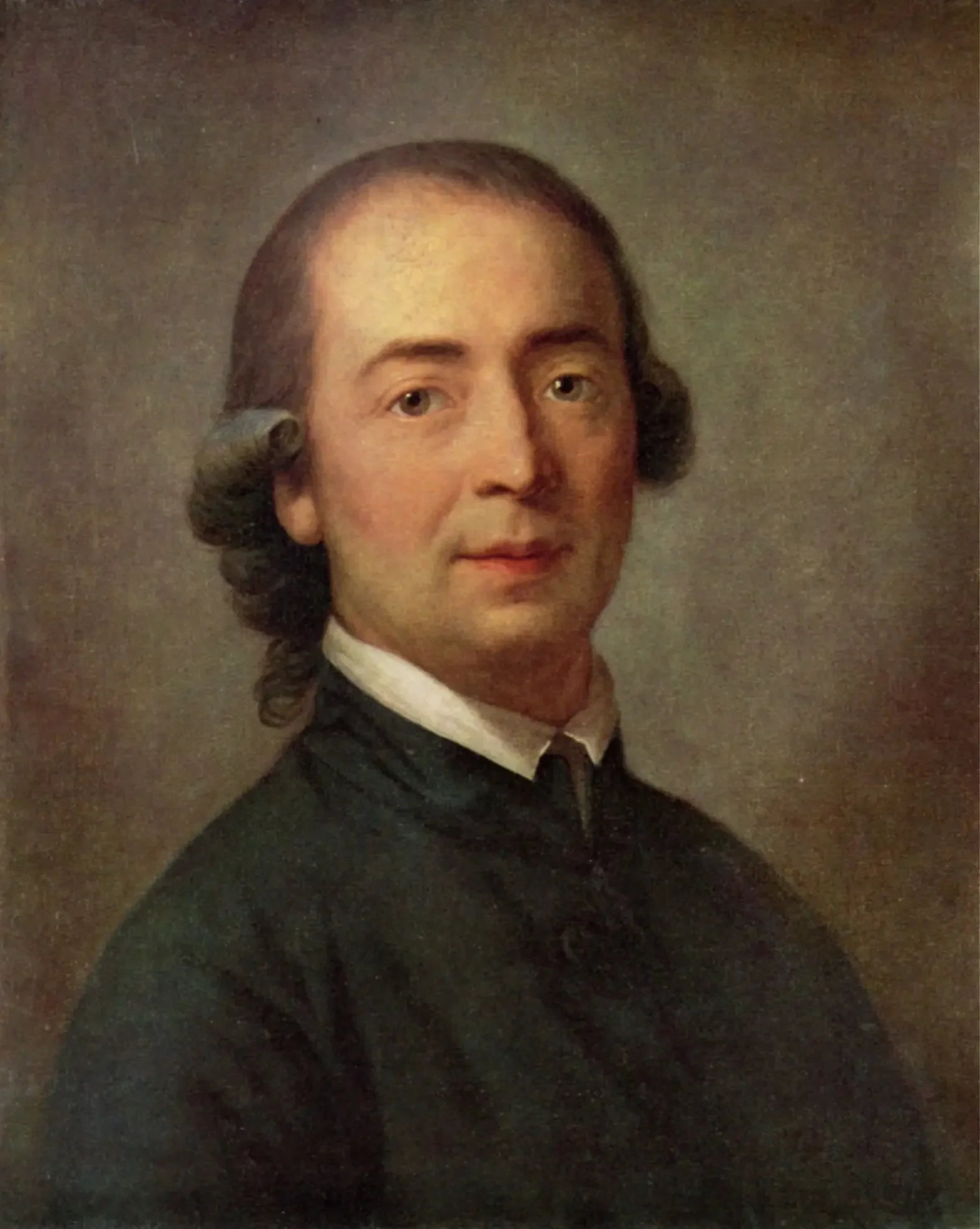Home / Reviving Mazzinianism / Humanity
Humanity
Written by David Tait | Last Updated on Dec 13, 2025
Humanity acts as the supreme moral law that directs every nation's mission toward the universal progress and collective well-being of all people. Humanity is the engine of all moral progress throughout human history.
If the nation is the means in Mazzini's political thought, the ultimate ends is Humanity. Where nationalism puts the nation as the both the ends and means of its ideology, Mazzinianism considers them as the fundamental expression of the division of labor toward the goal of universal well-being.
This perspective is what differentiates Mazzinianism from other nation-based ideologies. Rather than seeing the nation as static, it views nations as the individual members of an international society, working together against despotism.
Nations are the individuals of humanity like citizens are the individuals of nation. [1]
Humanity is the core idea behind Mazzini's support for self-determination movements and global democracy. For Mazzinians, these two principles are inseparable because only by complying with the greater, universal law of Humanity can nations truly work together freely.
Table of Contents ▼
Key Ideas of Humanity:
The Ultimate End, the Nation the Means
Humanity is the final goal of all political action: nations are not ends in themselves but the "individuals of humanity" tasked with a specific division of labor for universal well-being.Progress over Utopia
Humanity is an active, evolving entity moving toward a universal law of justice and moral excellence through a retroactive examination of what truly benefits the collective human story.The Divine Idea in Time
Because no single individual or generation can realize the full potential of the human spirit, Humanity acts as a continuous chain, evolving and applying higher truths across centuries.Universal Law as a Restraint
The "Law of Humanity" serves as a moral check on the popular will. A nation’s actions are only legitimate when they comply with the ethical requirements of the global human family.Education as Self-Cultivation
To serve Humanity, the individual has a duty to develop their unique faculties and moral character, transforming personal potential into a contribution for the progress of all.
What Is Humanity?
For Mazzinians, Humanity is not a passive collection of individuals or a static abstraction. Neither is it necessarily the empathic feeling of solidarity with one's fellow man, although that is closer. It is instead an active, collective, and historical entity progressing toward a single universal law.
Mazzini's Humanity
For Giuseppe Mazzini, this concept was understood in the context of his religious Christian belief. Mazzini regarded nationalities as having been divinely drawn by the hand of God, indicating for him a distinct destiny or contribution that each needed to play toward the greater progress of humankind:
Nationalities... appear to me to have been traced long ago by the finger of Providence on the map of Europe [2]
He regarded nationalities, therefore, to be the "workshops of humanity." While individuals would be oriented specifically to the destiny of their country, it was through their country that individuals would be able to contribute to Humanity. Unlike chauvinistic ideologies where the country was seen as the ultimate end and its destiny would have to come at the expense of others (i.e. in Imperialism, Fascism, Nazism etc.), Mazzini's idea was that the nation's destiny was specifically to work toward the benefit of others.
Nations and Missions
In Mazzini's conception, each individual nation had a divine mission that it should see to, since no single nation or movement could do it all. He saw nations not as permanent but as the varying expressions of humanity throughout time working toward the goal of humanity.
In his Christian view, the goal of Humanity was essentially the fulfillment of God's plan on Earth. Humanity represented this universal law where all individual humans would be considered as equal, free, with full rights and ethical regard for one another that, while likely never to be fulfilled, could be striven for.
Nations were the means toward this. Like individuals who have their own destiny, finding their own path of contributing to their country, nations had the same duty toward this final, universal goal. This vision uniquely synthesized the humanitarian and democratic principles underlying his idea of humanity.
History of Humanity: From Cicero to Herder
The Mazzinian concept of Humanity is the result of a long lineage of thought about the universal, and particularly its connection to nationality. Mazzini's idea is the result of philosophy from Cicero, to Johann Gottfried Herder, all the way to the Saint-Simonians.
In essence, the Mazzinian goal in Humanity in the context of nationalities is the historical result of a synthesis between two particular concepts: the pre-political reality of nationality and its relation to human society, and the political goal of achieving rights and freedom.
Cicero’s Humanitas
Though not applied in the context of a universal moral law, Cicero's understanding of humanitas was a foundational idea for how civic virtues could relate to the context of human progress.
For Cicero, humanitas was not an innate quality but a complex, acquired virtue, a form of "nature perfected" through rigorous education and moral discipline. Rooted in the shared human capacity for reason and speech, it gave rise directly to duties toward the common good (in the context of the Roman Republic). This was a principle of moralized politics, a belief that the statesman must be a good man and that ethics were inseparable from governance.
This idea echoes in Mazzini's belief in republican and civic virtue when it came to an individual's relationship with Humanity. Mazzini set a primacy on education for his conception of a republican government, not just in terms of knowledge, but in ethics and how to act within the republic. This individual cultivation for the citizen was essential for contributing to one's duties toward the nation and in turn to humanity.
CiceroFrom Christ to Kant
Mazzini’s Jansenist upbringing instilled a deep sense of spirituality and moral gravity. While he rejected the divinity of Christ, he embraced the ethical teachings of Christianity, seeing in them a fraternal bond that applied to all. This moral universalization in Christianity was a vital component in Mazzini's overall progressive view.
This religious impulse was filtered through the Enlightenment, finding resonance with the legalistic cosmopolitanism of Immanuel Kant. While Mazzini likely had little direct knowledge of Kant's specific political writings, his system shares a key structural feature: the use of a universal maxim to restrain political action.
Kant’s Categorical Imperative, a rationally founded duty, is mirrored in Mazzini’s "law of Humanity," which he believed must restrain the popular will of any single nation. Both thinkers sought a future of perpetual peace, though their methods would radically diverge.
Humanität in Herder
Following on indirectly from Cicero, the German romantic philosopher Johann Gottfried Herder developed his concept of Humanität, the spirit of humanity. For Herder, Humanität was both a descriptive and a normative concept and a rich tapestry of the unique cultural "genius" of different national spirits (Volkgeist). Humanität was a teleological concept and indicated the ultimate end of human existence; it was "human nature par excellence".
Herder's Humanität was focused around the individual's self-realization and cultivation toward developing reason and freedom. It was part of an ongoing process of "becoming," a cultivation of an individual's spirit through the medium of language which, for Herder, was the ultimate expression of nationality. Humanität for Herder required this moral progress through this cultivation (Bildung) and was the foundation for civic and moral consciousness.
If language is the organ of power of the soul, the means of our innermost formation and education, so we cannot otherwise than in the language of our people and country be well educated [3]
So, for Herder, this end goal of Humanität, the perfection of human nature in all moral virtues (love, dignity, justice, sympathy, equality, goodness, truth, and beauty), required the individual to be educated to best perform in the Volkgeist that they belong to. In other words, one's spirit, defined by language, was not perfect to begin with but needed to be acquired through education in one's language and culture. This was the way that one would develop universal humanistic moral capacities for reason and goodness.
For Herder, this did not relate to political action, until Mazzini took that final step.
Portrait of Johann Gottfried Herder (1744-1803)Mazzini’s Political Synthesis
Mazzini was transformative in turning Herder's cosmopolitanism of nations into a doctrine for political action. Born out of his famous articulation of duties, Mazzini gave an urgency to acting toward Humanity, making it not a descriptive idea as in Herder, but a moral imperative.
The importance of Humanity as the goal of his political thought is primary in Mazzini. In his The Duties of Man, Chapter IV, he writes:
Your first duties, first, not as to time, but as to importance—because unless you understand these, you can only imperfectly fulfil the rest—your first duties are towards Humanity.
You have duties as Citizens, as sons, as husbands, and as fathers; duties sacred and inviolable, and of which I shall shortly speak to you in detail, but that which constitutes the sacredness and inviolability of these Duties, is the mission, the Duty springing from your Human nature. [4]
For Mazzini, Humanity represented a higher law of action that came from the very essence of one's humanness. From the pure fact of your existence as a human being, you are compelled morally to respond to your duties toward Humanity. Indeed, for Mazzini, this was the true purpose of life.
Humanity as a principle emerged from the fact of our social existence: the fact that we do not exist in isolation made duties toward others a natural cause that we could abide by. However, he did not take a communitarian view that these social duties applied only to our country or our families, but instead to the well-being of Humanity as a whole.
Another important point for Mazzini's conception, echoing Herder, was how Humanity connected the individual to the divine and across the whole of human existence. Since we are not divine beings ourselves, we can only realize God's plan imperfectly through developing our own faculties, progressively improving from generation to generation:
In your terrestrial existence, limited both in education and capacity, the realisation of this Divine Idea, can only be most imperfect and momentary. Humanity alone, continuous in existence through the passing Generations, continuous in intellect through the contributions of all its members, is capable of gradually evolving, applying, and glorifying the Divine Idea.
Life therefore, was given to you by God in order that you might employ that life for the benefit of Humanity, that you might direct your individual faculties to aid the development of the faculties of your brother men, and contribute by your labour another element to the collective work of Progress, and the discovery of the Truth, which the generations are destined slowly but unceasingly to promote. [5]
The central idea here behind Humanity is the concept of Progress. Mazzini, in the same vein as Herder, looked at both the impermanence of nationalities over history and also emphasized the need for individual cultivation toward their best potential. Mazzini believed, inciting the Greeks as an example, that Humanity is pushed forward by the deeds of those striving toward that universal truth. These achievements make possible new advances in the next generation which all later progressively improve the human condition.
For this to happen, an individual must develop their faculties and to help educate others in order to continue to reach for Humanity. This included the moral cultivation of individuals to strive for their own moral excellence, and that must be done through their country in association with others.
Humanity and Progress in Mazzinianism
Of course, Mazzini’s religious evocations to Humanity, though powerful, do not necessarily have universal appeal. Understanding this concept in the context of God's divine moral teaching is the simplest way to comprehend what Humanity means, but it can also be understood in a more secular way without the need to appeal to the Divine.
For Mazzinianism today, Humanity is the fundamental concept that links their entire moral and political doctrine together and provides the firm basis for deciding upon action.
Progress Over Utopia
Humanity for Mazzinianism is fundamentally different from utopianism in the sense that it is progressive. Utopianism, for example in communism or in liberalism, assumes that the questions of human nature and politics have already been answered and therefore all that is left to do is to bring it into reality. History and politics are therefore unnecessary since the barriers that remain are merely practical. In other words, utopian ideologies focus on getting somewhere, often by force.
Progress is different. Rather than looking toward some theoretical state in the future, it is a retroactive examination and comparison to a universal standard. This universal standard is the perfect form of moral action, of well-being, of justice, material flourishing, and peace. Whereas Mazzini saw this in God's law, the Greek philosophers also tried to find it through dialectical reason.
Using this universal standard allows us to be able to work out progress or moral improvement. Humanity is not a dream but is, in fact, a duty.
Toward Universal Well-Being
But doesn't progress imply moving toward this universal standard?
Yes, but there is a difference between a utopia and this universal standard. While a utopia is a fixed vision of the perfect society, the universal standard represented by Humanity is revealed both in reason and by retroactive examination. We compare the progress made by successful societies and deliberate on what has been better for Humanity as a whole.
For example, human rights to liberty, freedom of expression, and democracy have been better (on the whole) for human development, and it stands to reason that this can fall under this universal standard for the best form of society, government, politics, or well-being. This well-being is not just the interests of each individual, but the true flourishing for all of humanity throughout its existence, even those generations to come.
For this reason, what has been achieved by countless generations toward this universal standard has counted toward progress and the advancement of our species.
How To Work Toward Humanity
As indicated above, Humanity can never truly be achieved. But whether it can or not is not the point. The point is that we must work toward Humanity and do that which will improve society and the world. For Mazzinians, working toward Humanity is a moral imperative and therefore needs practical steps in order for it to be fulfilled.
Nationalities: Reality and Principle
For Mazzinians, the real path for individuals to take on their duties and chase their own mission toward Humanity is through the nation. Mazzinians recognize two constraints that make the nation both the realistic option and the principled approach.
Nationality is something that each individual acquires and requires in order to engage in society. As in Herder's conception of the Volkgeist primarily originating in the language that we learn when we are young, we are thus inducted into a particular nationality that is not easy to change. In order to think, act and reason, our language and nationality become the sole effective medium. This is why Mazzinianism supports self-determination and reject imperialism because otherwise, a nationality would not be able to contribute freely and as it ought to.
This real constraint, universal on each individual, gives the individual a limit on ever achieving a perfect contribution (since they are not a god). This is the realism in the Mazzinian idea of progress.
In this way, we can also derive the moral principle of acting through the nation, since this is the only practical way in which we can work toward Humanity without turning to inaction or tyranny. The nation becomes our way to practically engage with our fellow citizens, and to take it as a microcosm of Humanity. Through the nation, then, we can actually contribute to wider Humanity with the power of association, more so than we could on our own.
Education and Self-Cultivation
Our moral education and self-cultivation are therefore extremely important when it comes to Humanity. We need to develop ourselves in order to become both articulate and effective to make a positive contribution. On the side of moral education, this means being able to engage in society and developing our faculties in order to contribute meaningfully to the political process. We need to be able to put forward new ideas and argue for new ways in order to improve the conditions of our societies.
On the side of self-cultivation, this is deeply individual. We have a duty to become and fulfill our own potential so we are contributing as the best of ourselves that, as a result, is beneficial to everyone else. This could be finding the right medium and situation, through either education, training, or self-discovery, that allows you to find your place within the story of Humanity. This also reflects the Mazzinian perspective on the duty of a national government, whose role is to provide the opportunity for individuals to cultivate themselves (although this remains a duty for the individual).
A Political Imperative
The Mazzinian idea of Humanity is a political imperative above everything. While Herder was contented with a descriptive concept (albeit with normative ideals) of Humanität, Mazzini gave it its political conception. This means that, as a duty, it is not something that one can turn away from without consequences to both the rest of society and oneself. Humanity, whether you believe in God or not, compels you to take on your role to make the world better and to contribute to its overall progress for all humankind.




